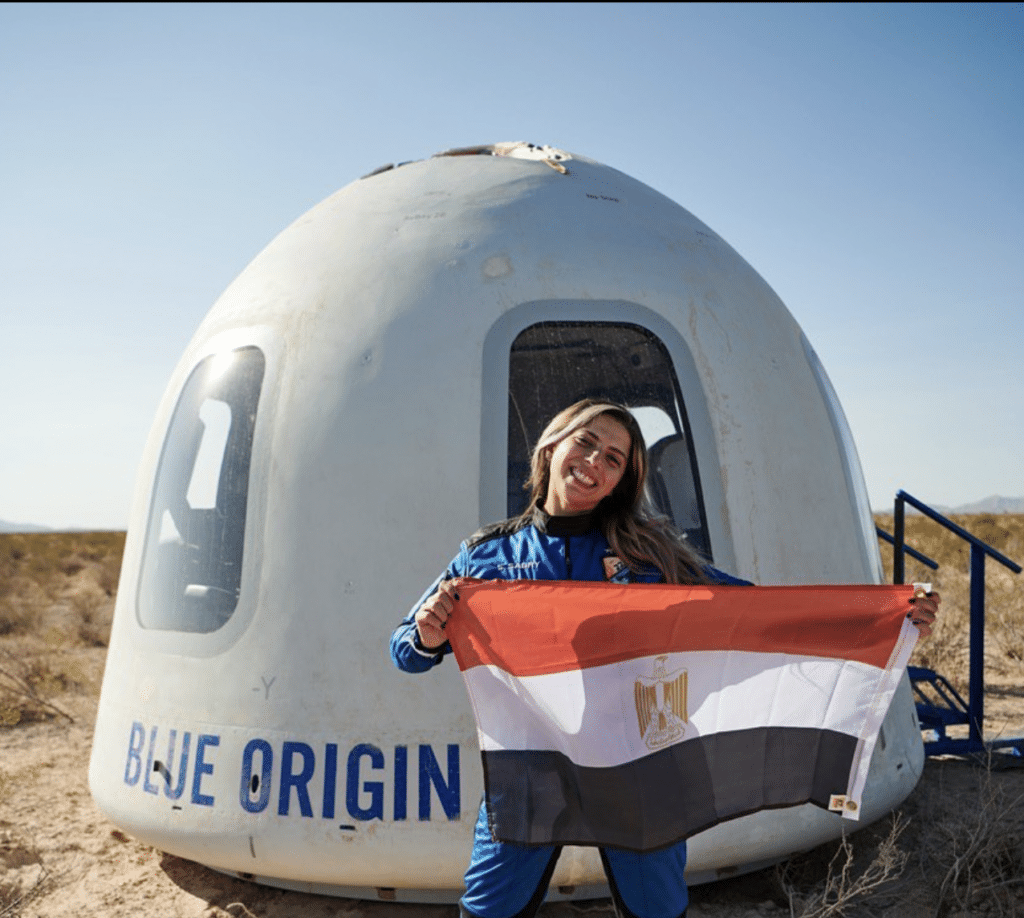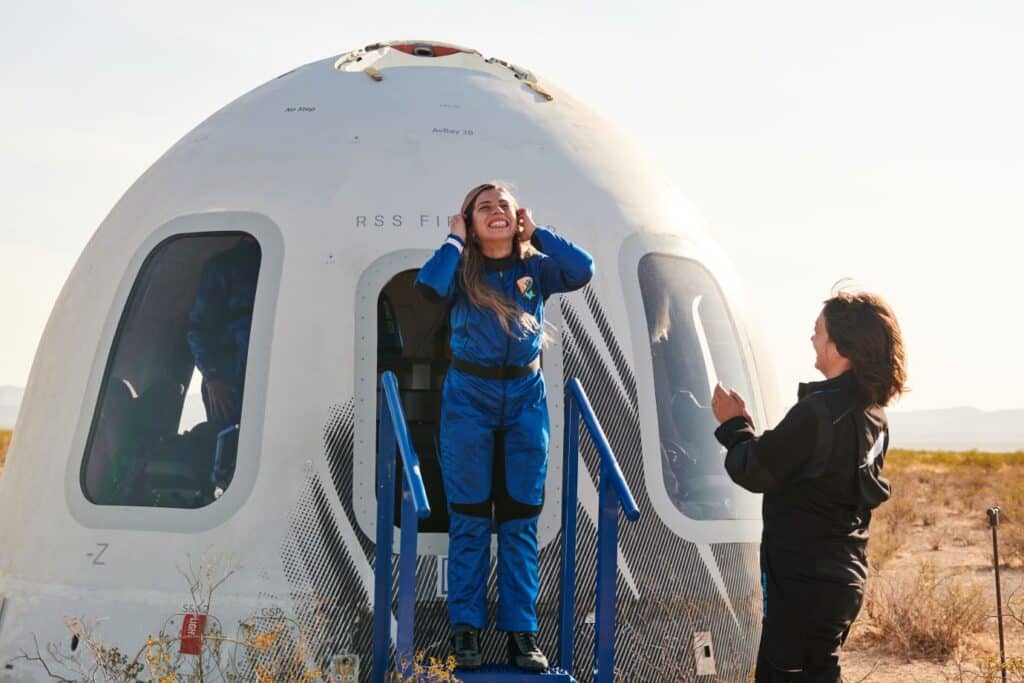Sara Sabry became the first Egyptian person, first Arab woman, and first woman from the African continent to go to space in August 2022.
It was a massive milestone in the space field and a significant moment for Sabry on a personal level.
“Of course, it’s an honour, and I’m very grateful to have had that experience. The first thing I said when I came back from space was that everyone needs to see this,” Sabry told Women’s Agenda recently.
“Seeing Earth from space, it’s something that belongs to all of us.”
Sabry is a mechanical engineer, and the Founder and CEO of Deep Space Initiative, a non-profit organisation looking to increase accessibility and opportunity in the space field through research and education. She is a passionate advocate pushing to ensure diverse groups of people can access space exploration, not just the privileged few.
“Growing up in Egypt, we don’t have access to the space field, no one talks about it,” Sabry shares. “If you ever dream about something like this, you’re always told that it’s not for us, this is not for our side of the world. It’s almost like you’re not allowed to dream about it.”
“But even as a child, I always had this rebellious part in me where I don’t listen to people telling me you can’t do something.”

Sabry was selected to go to space last year with Blue Origin as part of a program called Space for Humanity, which had thousands of applicants from all over the world.
“What they’re trying to do is democratise access to space, by picking leaders and people who have potential for global impact to go to space and analyse something called the Overview Effect, which is this new perspective that you get when you see Earth from space,” Sabry explains.
Sabry’s humanitarian efforts in the space sector have seen her awarded the prestigious IAF Emerging Space Leader award. She is currently undertaking a PhD in Aerospace Sciences, conducting research on the engineering of the next generation of planetary spacesuits at the NASA-funded Humanspaceflight lab.
So what’s it like to carry the honour of being the first Egyptian person, the first Arab woman and the first woman from the African continent to go to space? Sabry says it’s a tremendous responsibility, and one she takes very seriously.
“It took me a while to accept that only about 630 people have ever been able to go to space, and of those 630, only about 70 have been women. And honestly, there was a period after coming back where I had to accept that I was one of them.”
Sara Sabry
“For me, I actually felt a bit of guilt, because of where I come from, because it’s not something that happens to us. What I decided was the only thing I have to do now is to make sure that it’s not inaccessible for others. So that’s why for me, I have worked so hard day in and day out to make sure that it is more accessible for everyone around the world.”

Sabry explains that her current work at the Deep Space Initiative is what gets her up in the morning because the inaccessibility of space is something that she cannot, and won’t, accept.
“Coming back to Earth having had this experience is pushing me even more,” she said.
The Overview Effect
When Sabry went to space, she explains that she experienced a phenomenon that is widely talked about in the space field, called the Overview Effect, which is the perspective you get when seeing Earth from space.
“It changes your view on everything,” Sabry says. “A big part of it for me is how close space is. You get to space in a matter of minutes and it’s insane. Space is really right there.
“We always talk about space and Earth as two separate things. We never really say that one is part of the other. But looking at that window and seeing Earth and seeing darkness of space, I didn’t know that I would feel so connected to the universe.
“It’s this really weird feeling that I got that, you know, when I came back, it was as if someone ripped me away from where I was meant to be. It felt like, wow, for the very first time in my life, I felt like I was home.”
For Sabry, there was a sense of clarity about the impact each of us can have on the world, and how this impact can be so much bigger than we might think or believe. She also believes we all have a duty to contribute in any way we can to a greater good.
“We can change the world, and the problems that we think are way too big…they’re actually not that big. It really changes everything,” she said.
“Now I apply that to everything I do. The projects that I take on now, nothing ever seems too difficult. Everything seems doable.”
Sara Sabry will be in Australia in September for the Global Entrepreneurship Congress (GEC).


